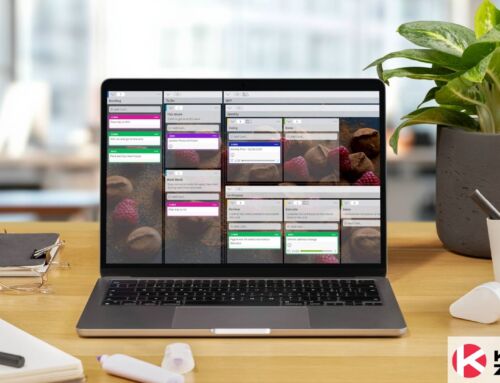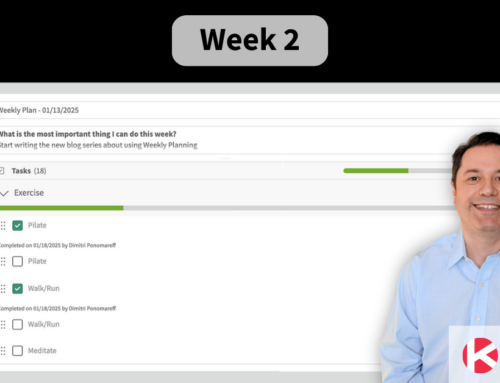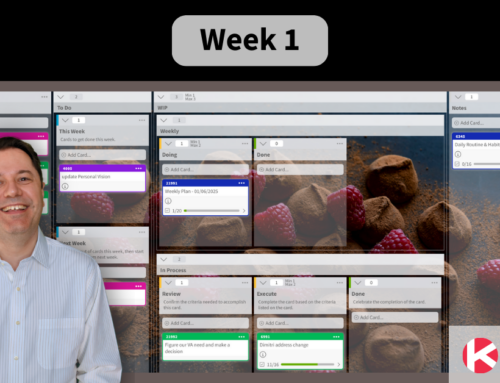
Sometimes it’s easy to get caught up in the daily routine of work. We do the usual grind and have less time to think if we’re performing at our best. You might think that’s usually reserved for the mid-year or annual employee performance review. But if you’re going to wait 6 months or up to a year before you change things up, you might miss opportunities to discover and show your full potential or correct mistakes.
While it’s good to receive feedback from others on how to improve, I believe we all should take a more proactive approach towards our professional growth. This means continuously finding ways to do things better. To help you take control of your professional growth, we share 11 ways to improve your performance at work.
What Areas of Your Performance Need Improvement
Before we discuss our tried and tested ways to improve your performance at work, you might be thinking about what areas of your work performance need improvement. When we talk about improving work performance, some may immediately think of improving their hard skills or technical skills.
Of course, getting trained and certified on technical skills are beneficial to improving work performance. But that is not the only aspect of your professional growth that needs attention. You also need to work on your soft skills. A good balance of both hard and soft skills will help you achieve better outcomes at work.
For this article, we’re sharing with you the different ways to improve your performance at work by focusing on improving your soft skills. These skills support and guide the way you would deliver and execute your work tasks.
Here are some of them:
- Planning and organization
- Time management
- Interpersonal Communication
- Decision-making and prioritization
- Goal setting
- Self-awareness
How to Improve Individual Work Performance
The tips shared below aim to help employees in setting a framework that enables them to perform at their best. These 11 ways to improve performance at work applies to any individual in any role. More importantly, these tips are actionable and easy to apply.
Know Your Goals and Objectives
It’s hard to know if you’re performing well if you don’t know what you should aim for. Setting clear goals and objectives will help you assess your progress and performance at work. Not only that but it will also help you align all your plans, actions, and tasks towards achieving those goals and objectives. Managers usually discuss goals and objectives with their direct reports at the start of the fiscal year. Be sure to take that time to get a clear picture of what outcomes you need to achieve. Schedule regular check-ins with your manager to make sure you’re still right on track.
Prioritize and Organize
Knowing how to prioritize and organize work is a crucial component of peak performance. Putting more effort into things that matter most at the right time will ensure you get results that give more value to the business. You can use your goals and objectives to guide you in prioritization. For projects, discuss with your manager and team what the priorities are and align your tasks with them. Your team can use a task management tool to organize work and enable tasks to flow smoothly. As for you, a personal task management system such as Personal Kanban can help you in planning and organizing all the aspects of your work.
Strive for Continuous Learning and Improvement
If you want to improve your performance at work, you need to develop a continuous improvement mindset. You need to challenge yourself and constantly ask yourself if there’s a better way to do your work. Learn new methods and techniques to be more efficient and effective at what you do. You have to keep in mind that perfection is a boundless pursuit. There’s always room for improvement.
And since learning must never stop, and especially when the employees are working hard in their jobs to put in their best, it’s important that they feel supported in their career progression. This is when the companies should step in and help their employees advance in their careers, and in return, employers will have more engaged employees with better skills to help level up the business. If the career advancement opportunities involve traveling abroad, companies are crossing a huge item off the list by finding a way how to manage business travel more efficiently.
Plan Ahead
Of all the ways to improve performance at work, planning should be on top of anyone’s list. Planning enables focus and prevents the possibility of overwhelm and stress. Planning also prepares your mind for the workday ahead and helps you focus on your most important tasks. To heighten your focus, consider using the 4Ds of Effective Time Management: Delegate, Delay, Delete, and Do.
- Delegate – Tasks that need to be done but gives a low ROI if you do it yourself. You can choose to delegate tasks to your team if you have direct reports or assign it to someone who can do it better than you.
- Delay – Tasks that need to be done but not necessarily now. You can defer or delay these tasks but be sure to review them regularly in case they can no longer be delayed further. Be sure that you apply this technique with caution as it can lead to procrastination.
- Delete – Tasks that do not bring any value to your work and professional growth. Distractions, interruptions, answering unnecessary meetings or emails, are just some examples of tasks that are non-value adding. If you want to maintain focus when you work, you need to ensure that the tasks you have planned are important for you.
- Do – Tasks that you need to roll up your sleeves for and just do. Focus on one task at a time and work until it gets done.
Take note that schedules for meetings and other work-related activities also need to be included in your plan. Apply the 4Ds to your meetings and events the same way you would do for a regular task. This way you can ensure your time is spent on things that matter.
Stay Focused When Doing Work
One of the surefire ways to improve performance at work is to stay focused. Now that you’ve planned what to do, you need to get things done. For you to deliver quality work on time, you have to focus. The secret to maintaining focus is to focus on one task at a time and do it from start to finish. This is also one of the key concepts of Personal Kanban that enable individuals to achieve efficiency.
Eliminate Distractions
Focusing on work means eliminating distractions. Many things could grab your attention during the workday. Social media, work gossip, a messy work station, and notifications from your smartphone every 5 minutes are just some of the distractions you need to eliminate. Anything that takes away time from doing productive work is considered a distraction. You can attend these if necessary during your breaks. But when you’re back at your desk, undivided attention towards your work is a must.
Do the Difficult Tasks First
Mark Twain said it best, “If it’s your job to eat a frog, it’s best to do it first thing in the morning. And if it’s your job to eat two frogs, it’s best to eat the biggest one first.” Your frog is the worst task you have to do for that day and by worst, we mean the most important. Most of the time, we delay the most important task until we don’t have much time left before the deadline. We end up cramming and stressing ourselves out. But if you get your frogs out of the way first thing in the morning, you can go on for the rest of the day knowing that you’ve already covered the most important task of the day.
Know Your Limitations
One of the best ways to improve performance at work is to focus on your priorities. This means you have to say “No” to tasks, events, and activities that just don’t “make the cut”. When your workday is already full and your boss adds another item on your to-do list, take the time to clarify and tell them what the impact is if you’ll have to squeeze in another task. How about your colleague who keeps asking for help when you’re already deep at work? You have to learn how to stop taking in these extra tasks at the wrong time because if you’ll do so, the things you’ve got planned for the day won’t get done. Worse, you’ll end up working extra hours just to get them done.
Power Up Your Productivity Tools
There are a ton of productivity tools that will help you achieve peak performance at work. One of the best ways to improve performance at work is to find tasks that you can automate. This leaves you with more time to focus your energy on tasks that require critical thinking and expertise. Some tools can help you eliminate distractions and maintain your focus while working.
Ask For Feedback
If you’re looking at ways to improve your performance at work, you need to know which aspect you need to work on. Sometimes self-reflection isn’t enough. You need to get insights from your colleagues because their perspective may be different from yours. They may also give you some advice on how you can improve your performance at work. Ask feedback from your manager and your teammates. Then use that feedback to plan how to improve.
Communicate Effectively and Consistently
A key driver for improved work performance is effective communication. Gain clarity on work expectations and tasks. If you’re unsure about something, don’t be afraid to ask. Remain in constant communication with your team to keep yourself aligned especially when working on projects together.
Improve Work Outcomes When You Improve Performance
There are a lot of ways to improve performance at work. These 11 tips are designed to help you form a habit of preparation, organization, focus, and continuous improvement when it comes to doing your work. If you’re experiencing overwhelm or stress, try out these tips to turn things around. Or if you’re one of those who just want to always find the better way, you might find these tips helpful. Are there other ways you can suggest how we can improve performance at work? Share them in the comments. We’d love to know your tried and tested hacks.
Learn to Work Smarter, Not Harder!
Get our top articles weekly.
Table Of Contents
Discover many more posts…







